DELAWARE SUPREME COURT ADOPTS EXPANSIVE VIEW OF PUBLIC NUISANCE AND TRESPASS LIABILITY
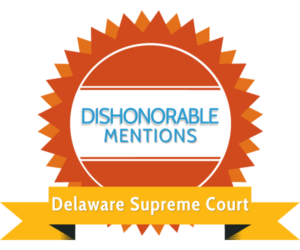 Delaware has traditionally recognized public nuisance and trespass liability as being cabined to the party that controls the nuisance, or the party that intrudes upon another’s land, whether in their person or by an instrumentality they control. In 2020, Delaware Attorney General Kathleen Jennings pursued a novel expansion of these common law principles in an effort to hold Monsanto responsible for the cleanup of polychlorinated biphenyl’s (PCBs). The State’s litigation was misdirected, however, as Monsanto was not the polluter. The company ceased its lawful manufacturing of PCBs over four decades ago and had no influence over the third parties that introduced the chemicals into the environment. The Superior Court of Delaware properly recognized this glaring issue with the State’s claims and dismissed the complaint.
Delaware has traditionally recognized public nuisance and trespass liability as being cabined to the party that controls the nuisance, or the party that intrudes upon another’s land, whether in their person or by an instrumentality they control. In 2020, Delaware Attorney General Kathleen Jennings pursued a novel expansion of these common law principles in an effort to hold Monsanto responsible for the cleanup of polychlorinated biphenyl’s (PCBs). The State’s litigation was misdirected, however, as Monsanto was not the polluter. The company ceased its lawful manufacturing of PCBs over four decades ago and had no influence over the third parties that introduced the chemicals into the environment. The Superior Court of Delaware properly recognized this glaring issue with the State’s claims and dismissed the complaint.
On appeal, however, the Delaware Supreme Court ruled in June that a manufacturer can be held liable if it “participated to a substantial extent in carrying out the activity that created the public nuisance or caused the trespass.” In essence, this ruling makes businesses that lawfully make and sell goods absorb the cost of wrongful conduct by purchasers over which the manufacturers had no control. Though lower court decisions have hesitated to expand public nuisance liability, which traditionally involves land use, to product-based claims, such as for societal harm attributed to guns or opioids, the Court simply dismissed their apprehension as “unsupported.”
Given that a robust number of businesses incorporate in Delaware and submit to the jurisdiction of its courts, creating “super-torts” out of traditional public nuisance and trespass claims will be significantly disruptive to their operations. This decision opens the floodgates for countless future lawsuits that will be born out of a known or perceived harm that can in some way be tied back to a business. While some products may pose risks, the proper solution is prospective legislation, not retroactive regulation.
ILLINOIS COUNTIES REMAIN VENUE OF CHOICE FOR ASBESTOS CLAIMS
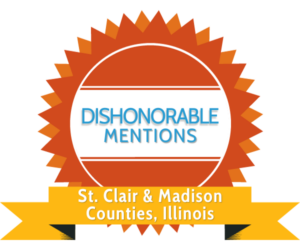 Three Illinois counties – Madison, St. Clair, and Cook – have remained a hotspot for asbestos claims, attracting plaintiffs from across the country due to their favorable litigation environments. Even as asbestos claims continue to fall nationwide, plaintiffs’ firms continue to choose this trio of counties as their preferred destination while defendants bear the burden of fighting what are often unsubstantiated claims. Making matters worse, wrongful death legislation signed by Governor J.B. Pritzker on August 11 will now allow plaintiffs to seek punitive damages in these cases.
Three Illinois counties – Madison, St. Clair, and Cook – have remained a hotspot for asbestos claims, attracting plaintiffs from across the country due to their favorable litigation environments. Even as asbestos claims continue to fall nationwide, plaintiffs’ firms continue to choose this trio of counties as their preferred destination while defendants bear the burden of fighting what are often unsubstantiated claims. Making matters worse, wrongful death legislation signed by Governor J.B. Pritzker on August 11 will now allow plaintiffs to seek punitive damages in these cases.

Madison County
Madison County remains the top jurisdiction for asbestos litigation in the country, with more than double the claims of neighboring St. Clair County and hosts nearly a third of all asbestos lawsuits filed nationwide. Like in years past, mesothelioma claims predominate in Madison County, making up close to 90% of the counties asbestos related caseload.
Out-of-state plaintiffs continue to make up the bulk of cases seen in Madison County, with over 90% of all filings in this jurisdiction coming from outside Illinois. Over-naming defendants has also been an enduring issue in both Madison and Cook Counties. The average number of companies named as defendants in each complaint rose from 61 in 2021 to 64 the following year.
Thus far in 2023, asbestos litigation has further increased in Madison County, up 5.6% year over year through July. Lawsuits alleging that traces of asbestos in talcum powder products was responsible for a person’s injury increased in the county by 35%, consistent with a nationwide rise in such claims.
St. Clair County
Despite a modest decline in asbestos lawsuits filed in 2022 from the previous year, St. Clair County still ranks towards the top in asbestos litigation nationwide. Lung cancer claims, in particular, make up most asbestos filings in the county. Like in Madison County, the vast majority of these claims are brought by out- of-state plaintiffs seeking to benefit from this favorable venue.
A mid-year report shows that, like in Madison County, in 2023, claims in St. Clair County are outpacing years past by nearly 10%.
MINNESOTA LEGISLATURE ENACTS LIABILITY-EXPANDING AGENDA
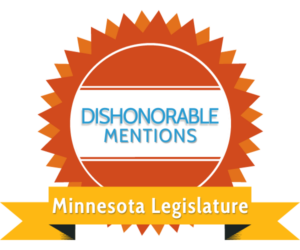 The 2023 Minnesota legislative session was bleak for the state civil justice system. In May, Governor Tim Walz signed multiple omnibus bills that impose substantial new liability burdens on manufacturers, employers, and health care providers.
The 2023 Minnesota legislative session was bleak for the state civil justice system. In May, Governor Tim Walz signed multiple omnibus bills that impose substantial new liability burdens on manufacturers, employers, and health care providers.
For example, S.F. 2909, expands private consumer litigation by eliminating the need to show that the litigation benefits the public, as previously required by the Minnesota Supreme Court in Ly v. Nystrom (Minn. 2000). This amendment will lead to misuse of the state’s consumer protection law to address purely private disputes to take advantage of the ability to recover attorney’s fees. Another provision of the same bill does away with a constraint in wrongful death actions that that had constrained recovery in pecuniary losses, those with an objective monetary value.
One provision of S.F. 2744, the “Family Protection Act,” prohibits family member exclusions from boat insurance coverage for bodily injuries. This may prompt family members to sue each other just to recover damages paid for by their boat insurance.
Lastly, S.F. 3035 substantially revises employment laws in the state. Among other negative provisions, this new law allows employees in several industries, including the meatpacking, warehouse, and nursing home industries, to sue their employers if certain workplace conditions are not met.
WISCONSIN COURTS’ RULINGS SHOWS STATE ‘NOT OPEN FOR BUSINESS’
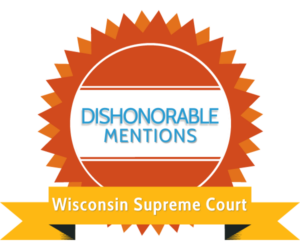 After being struck from behind at high speed by an inattentive teenage driver, a plaintiff sought to shift the blame for his severe injuries to the maker of his 2013 Hyundai Elantra. The plaintiff faulted his driver’s seat— specifically the seat’s headrest design — as the source of his injuries. The result – a $32 million verdict – stemmed from a series of errors that is a cautionary tale for those who attempt to defend product liability cases in Wisconsin courts.
After being struck from behind at high speed by an inattentive teenage driver, a plaintiff sought to shift the blame for his severe injuries to the maker of his 2013 Hyundai Elantra. The plaintiff faulted his driver’s seat— specifically the seat’s headrest design — as the source of his injuries. The result – a $32 million verdict – stemmed from a series of errors that is a cautionary tale for those who attempt to defend product liability cases in Wisconsin courts.
In 2011, Wisconsin enacted reforms including strengthening its standard for admissibility of expert testimony, adopting a rebuttable preemption that products that comply with safety standards are not defective, and permitted manufacturer to improve the safety of their products without concern that such changes could be used against them. After Wisconsin adopted these changes, it declared the state “open for business.” The trial of this product liability case threw that proposition in doubt, as the court allowed use of junk science and permitted introduction of product recalls that were not relevant to the injury.
After both the Wisconsin Court of Appeals and the Wisconsin Supreme Court let the trial court’s rulings stand, there can be no doubt: Wisconsin is not “open for business.”
For full context, it is critical to understand the legal missteps the Wisconsin trial court committed and that the appellate courts summarily affirmed. Here, the trial court:
- Admitted the testimony of a plaintiff’s “expert” who presented a theory that the seatback caused the injury that defied basic physics and had not been tested;
- Allowed that witness, a biomechanical engineer with no medical expertise, to offer a conclusory opinion on the cause of the plaintiff’s injuries;
- Allowed the plaintiff’s treating physician to offer opinions that ventured into the realm of biomechanical engineering;
- Allowed the plaintiff to tell the jury about 85 unrelated voluntary product recalls that Hyundai and its sister company had conducted spanning three decades — highly prejudicial information with no relevance to the Elantra seat at issue that punishes companies for protecting customer.
Now Wisconsin law apparently allows all voluntary product recalls to be used against a manufacturer— even if those recalls are entirely unrelated to the alleged defective product at issue. Plaintiffs may now “rebut” the presumption that a product is non-defective if it adheres to federal safety guidelines by showing the jury unrelated recalls on different products of that manufacturer, or recalls from a different manufacturer—i.e., that manufacturer’s sister company.
Now that the Wisconsin Supreme Court has denied review of the Wisconsin Court of Appeals decision affirming the trial court’s judgment, the Wisconsin court system has effectively wiped-out significant portions of the legislature’s tort reform—sadly answering the question: Wisconsin is not “open for business.”
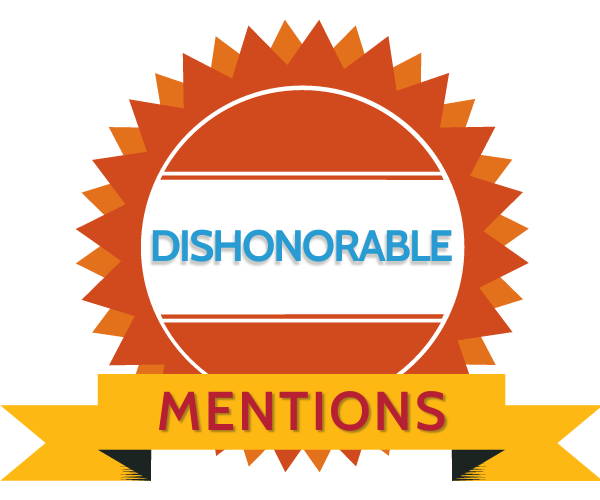



 Delaware has traditionally recognized public nuisance and trespass liability as being cabined to the party that controls the nuisance, or the party that intrudes upon another’s land, whether in their person or by an instrumentality they control. In 2020, Delaware Attorney General Kathleen Jennings pursued a novel expansion of these common law principles in an effort to hold Monsanto responsible for the cleanup of polychlorinated biphenyl’s (PCBs). The State’s litigation was misdirected, however, as Monsanto was not the polluter. The company ceased its lawful manufacturing of PCBs over four decades ago and had no influence over the third parties that introduced the chemicals into the environment. The Superior Court of Delaware properly recognized this glaring issue with the State’s claims and dismissed the complaint.
Delaware has traditionally recognized public nuisance and trespass liability as being cabined to the party that controls the nuisance, or the party that intrudes upon another’s land, whether in their person or by an instrumentality they control. In 2020, Delaware Attorney General Kathleen Jennings pursued a novel expansion of these common law principles in an effort to hold Monsanto responsible for the cleanup of polychlorinated biphenyl’s (PCBs). The State’s litigation was misdirected, however, as Monsanto was not the polluter. The company ceased its lawful manufacturing of PCBs over four decades ago and had no influence over the third parties that introduced the chemicals into the environment. The Superior Court of Delaware properly recognized this glaring issue with the State’s claims and dismissed the complaint. Three Illinois counties – Madison, St. Clair, and Cook – have remained a hotspot for asbestos claims, attracting plaintiffs from across the country due to their favorable litigation environments. Even as asbestos claims continue to fall nationwide, plaintiffs’ firms continue to choose this trio of counties as their preferred destination while defendants bear the burden of fighting what are often unsubstantiated claims. Making matters worse,
Three Illinois counties – Madison, St. Clair, and Cook – have remained a hotspot for asbestos claims, attracting plaintiffs from across the country due to their favorable litigation environments. Even as asbestos claims continue to fall nationwide, plaintiffs’ firms continue to choose this trio of counties as their preferred destination while defendants bear the burden of fighting what are often unsubstantiated claims. Making matters worse, 
 The 2023 Minnesota legislative session was bleak for the state civil justice system. In May, Governor Tim Walz signed multiple omnibus bills that impose substantial new liability burdens on manufacturers, employers, and health care providers.
The 2023 Minnesota legislative session was bleak for the state civil justice system. In May, Governor Tim Walz signed multiple omnibus bills that impose substantial new liability burdens on manufacturers, employers, and health care providers. After being struck from behind at high speed by an inattentive teenage driver, a plaintiff sought to shift the blame for his severe injuries to the maker of his 2013 Hyundai Elantra. The plaintiff faulted his driver’s seat— specifically the seat’s headrest design — as the source of his injuries. The result – a $32 million verdict – stemmed from a series of errors that is a cautionary tale for those who attempt to defend product liability cases in Wisconsin courts.
After being struck from behind at high speed by an inattentive teenage driver, a plaintiff sought to shift the blame for his severe injuries to the maker of his 2013 Hyundai Elantra. The plaintiff faulted his driver’s seat— specifically the seat’s headrest design — as the source of his injuries. The result – a $32 million verdict – stemmed from a series of errors that is a cautionary tale for those who attempt to defend product liability cases in Wisconsin courts.

